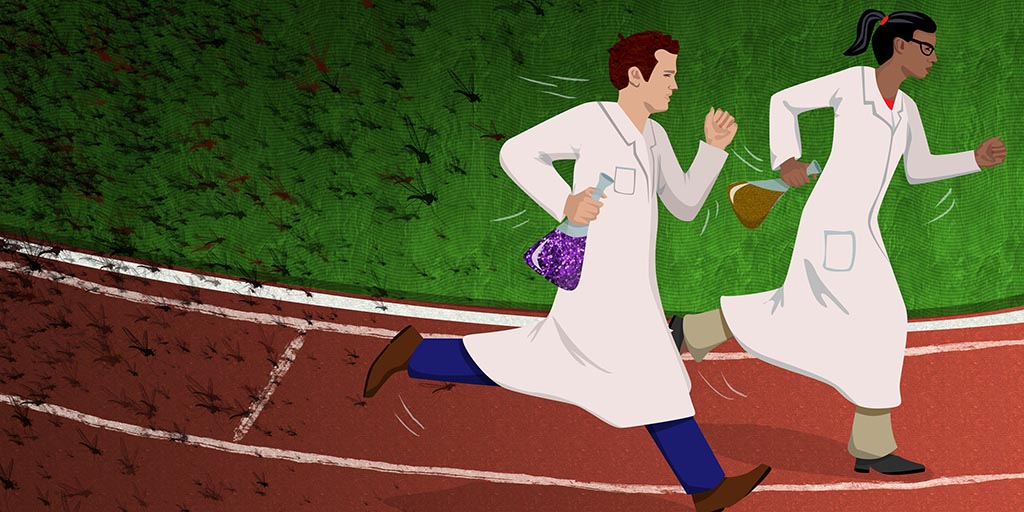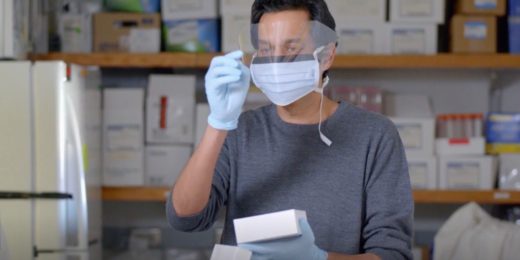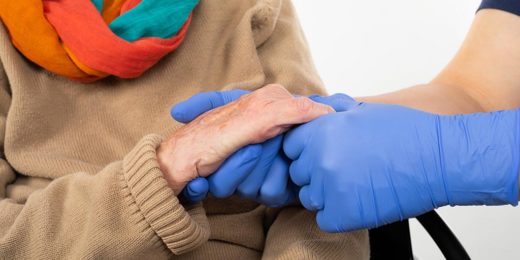Today, there are some 100 coronavirus vaccines in different stages of development, as scientists race to produce the first serum to protect people from COVID-19. Will one be successful? That's yet to be determined.
What's certain is that development is proceeding at an unprecedented pace -- and that without a vaccine, human life will not return to normal anywhere on the planet.
Typically, vaccine development can take from 10 to 15 years; but less than a year after the first case of COVID-19, the U.S. pharmaceutical company, Moderna Therapeutics, has a vaccine candidate that will soon be tested on tens of thousands of people in the critical phase three of an efficacy trial.
To get up to speed on the revolutionary pace of coronavirus vaccine development, I spoke to Stanford Medicine's Bali Pulendran, PhD, a professor of pathology and of microbiology and immunology for a 1:2:1 podcast.
This Q&A is condensed and edited from our conversation.
Anthony Fauci, MD, director of the National Institute of Allergies and Infectious Diseases, has called having a vaccine by the end of 2020 aspirational. Would you agree?
Well, why not? Aspirational is a term with positive connotations. Certainly, with a crisis like COVID-19, one has to aspire to many things. In fact, Dr. Fauci probably isn't far off the mark. Many vaccines are being tested right now. Ten candidates are in clinical trials, and a couple of those may be leading in terms of how far along they are.
What's the process for developing a vaccine?
First, you need to isolate the pathogen, a.k.a the virus. Then you need to identify a bit of that pathogen, a protein perhaps, that is immunogenic -- meaning it will evoke an immune response if it's injected into an animal or human and that immune response is effective at controlling the pathogen.
Once you find the piece of the protein that is immunogenic, you test a vaccine containing that protein in mice, then in a non-human primate model. That's the preclinical testing.
When have promising results in these preclinical models, you progress to human testing, which occurs in a series of steps. The first step, a phase 1 clinical trial, is a relatively small trial of 20 to perhaps 100 people. The goal is to assess the toxicity of the vaccine, so you know if it's safe for use in people.
After you have a positive readout on the toxicity and safety, you progress to a phase 2 trial which can include as many as 200 to 400 people. In this phase, you test immunogenicity -- or how strong an immune response the vaccine induces and how long it lasts.
Finally, a phase 3 trial is on a much larger scale, perhaps as many as 30,000 people, with a control group. Here, you're assessing whether it actually works to protect people from infection on a broad scale.
Once we have a vaccine, how do you ramp up the delivery of more than 7 billion doses?
It's unprecedented. We essentially have to vaccinate pretty much the whole planet of more than 7 billion people. We're looking at perhaps a handful of vaccine candidates, all of which confer some degree of protection, to be distributed as a portfolio of vaccines that could, collectively, help control this pandemic.
We've spent so much time talking about the immunology of these vaccines, but I do think that there are enormous hurdles in terms of manufacturing capability and distribution.
As a research scientist what have you been thinking about these past several months during the pandemic?
As a research scientist and as a human being, it's been a bit of a whirl, a mixture of emotions.
On one hand is a tremendous sense of excitement and focus on understanding the virus and the immune response to this virus -- participating in some of those studies and being involved in a global network of scientists trying to design vaccines against this. It's reminded us that everything that we had been doing as immunologists is absolutely critical for the global fight against these pathogens. That's been truly inspirational and reinvigorating.
On the other hand, it's very sad to see the human toll this virus has taken. It's a sober reminder that this may merely be a prelude of even worse things to come.
Listen to more 1:2:1 podcasts on COVID-19 from Paul Costello at https://soundcloud.com/stanfordmed/sets/covid-19
Image by Molly Ferguson Art






